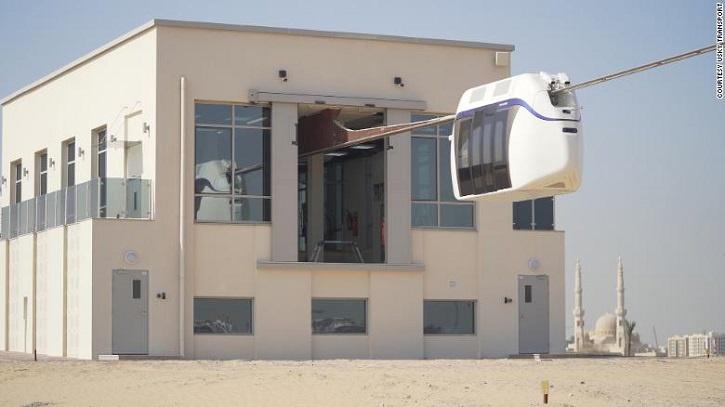Traffic congestion is an unavoidable aspect of our lives. Perhaps not so much during the pandemic, but we have faith that one day we will be able to return to our regular lives, albeit getting delayed on the road is not something we miss.
To address this issue, uSky Transport, a Belarus-based firm, constructed a 400-meter test line in Sharjah. The company thinks that building a network of autonomous high-speed pods hung from a steel track around cities will solve traffic concerns.
Also Read | Bridging the gap: UK undertakes study to connect Northern Ireland and Scotland
uSky Transport’s innovative electrically powered pods with attractive interiors are designed to alleviate traffic congestion. These high-speed pods are now being tested by the company to determine if they can be utilised as a regular mode of transportation.
In Sharjah, Dubai, the first experiments employing a network of autonomous high-speed pods are underway. The concept is to utilise pods hanging on a steel rack to traverse over congested metropolitan areas. According to CNN, the test track is now just 400 metres long.
The inside is meant to resemble a first-class airline suite in terms of feel and appearance. Mood lighting, floor-to-ceiling windows, and even lounge music are all included. Two cushioned armchairs with two folding seats are included in the pod.
According to the results of the testing thus far, it can carry up to four passengers.
uSky intends to construct a 2.4-kilometer line to test greater speeds and to carry passenger and freight pods via a single network. By the end of the year, the company aims to have finalised its first commercial deal.
The company’s main goal is to progressively clear roads and open up space on the ground so that it may be utilised for things like walkways, public areas, and trees.
Also Read | China launches first bullet train in Tibetan town, close to Arunachal Pradesh
Oleg Zaretsky, uSky Transport’s CEO, told CNN, “The ground level is completely oversaturated, and people are tired of traffic jams. People are tired of emissions.”
According to uSky, one kilometre of the subway will cost $150 million, with the system itself costing $10 million. They have suggested that by utilising fewer materials for construction, carbon emissions will be reduced.






